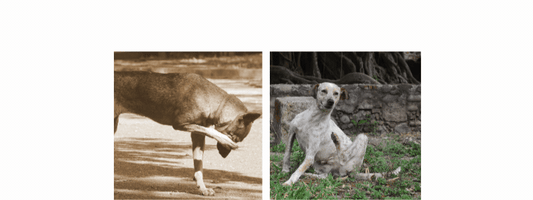Understanding Pancreatitis in Dogs: Myths and Facts
As a responsible dog owner, it's crucial to be informed about your pet's health, especially when it comes to conditions like pancreatitis. Let's debunk some common myths and get to the actual facts about this condition.

- Myth 1: High Fat Causes Pancreatitis,
- Myth 2: High Protein Causes Pancreatitis,
- Myth 3: Dogs with Pancreatitis Must Be Put on a Low-Fat Diet.
While these myths hold some truth, they may not be beneficial in the long term. Here's why:
The Reality Behind Pancreatitis
- Fact 1: Pancreatitis is not solely caused by a high-fat diet. It's important to understand that animal fat is actually beneficial for dogs, supporting their brain and heart health. Often, pancreatitis arises from high-greasy human foods heavily laden with additives, salt, and trans fats, which we unknowingly feed to our dogs—foods like fried chicken, bacon fat, and carb-rich items such as noodles, bread, and dog dry food. These are not foods that they need. So, stop feeding what you eat to your dogs.
- Fact 2: Dogs need high protein because they are carnivores. They evolved from wolves, and their natural diet has always been protein. Historically, when they ate, they would consume the hunted game’s stomach, which inadvertently contained some vegetables and fruits. So, the natural diet of dogs should resemble this combination. Dogs with pancreatitis can eat protein, but if you are concerned, then feed them lean meat for a period of time.
- Fact 3: We have heard too many times that dogs with pancreatitis must be put on a low-fat diet. Well, the answer is both yes and no. The "yes" applies to dogs already suffering from pancreatitis; dietary management is crucial. A low-fat, easily digestible diet can help reduce the burden on the pancreas and prevent future flare-ups. However, the "no" comes into play for long-term administration. A low-fat diet over an extended period can lead to issues like dryness in the coat, skin, and nose, eventually causing complications. To mitigate this, it's recommended to add healthy oils, such as coconut oil or fish oil, to the diet once your dogs have recovered from pancreatitis.
So, there you have it—the myths debunked by the facts. However, it’s still important to understand what pancreatitis is in order to prevent or mitigate it effectively.
Web site: The Amazing Doggy SuperFood – something doggy
What is Pancreatitis? Pancreatitis is an inflammation of the pancreas, an essential organ for digestion and blood sugar regulation. In dogs, pancreatitis can be acute, causing sudden and severe inflammation, or chronic, leading to recurrent episodes. Common symptoms include vomiting, diarrhea, abdominal pain, loss of appetite, lethargy, and dehydration. Pancreatitis can be triggered by various factors such as a high-fat (non-animal) diet, obesity, inflammation, certain medications, genetic predisposition, and underlying health conditions like diabetes or hypothyroidism. One of the best preventive measures is to address the dog's obesity, as it can lead to inflammation and pancreatitis over time. Keeping dogs at a healthy weight through regular exercise can significantly reduce the risk of pancreatitis.
Web site: The Amazing Doggy SuperFood – something doggy
Monitoring and Care
It's essential to monitor your pet for any signs of pancreatitis and seek veterinary care promptly if symptoms occur. Maintaining a healthy diet and weight, avoiding high-fat (non-animal) foods, and scheduling regular veterinary check-ups can help manage and prevent pancreatitis.
Conclusion
Being well-informed and proactive about your dog's health can make a significant difference. By understanding the true causes of pancreatitis and implementing balanced dietary practices, you can ensure your dog leads a healthy, happy life. Remember, while low-fat diets can be beneficial in the short term, incorporating the right oils is essential for your dog's overall well-being when feeding low-fat food in the long term. When you notice dryness in their coat, skin, or nose, it’s time to add essential oils to their low-fat diet.
With this information, Somethingdoggy has developed low-fat and low-glycemic meals to better support the pancreas and gut of dogs with pancreatitis. This food is high in lean meat and contains low-glycemic ingredients to ensure your dogs get the protein they need while finding relief from pancreatitis.
For more information on the product, please click below to learn more, because your dog deserves nothing but the best.
Web site: The Amazing Doggy SuperFood – something doggy




